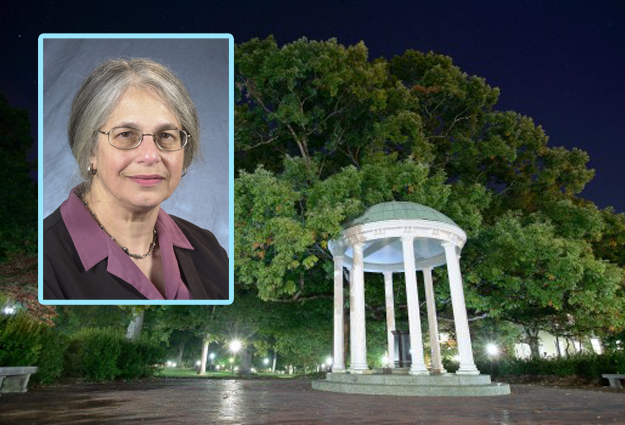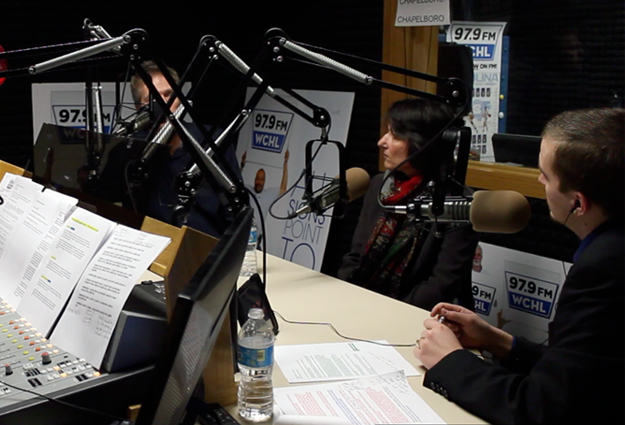Professor emerita of Slavic literature at UNC, Madeline Levine says the only way Julius Nyang’oro could have been caught cheating the system was if his colleagues or students reported the wrongdoings.
“Unless a chair’s colleagues comes forward with complaints, there is no way that a dean at any level will know that something is wrong—well, colleagues and students,” Levine says.
She says a certain level of trust has to be involved.
“If you approach your colleagues and faculty as if everybody is a potential scoundrel, how could you possibly run a university?” Levine asks. “How could you run a business if you thought all of your employees were potential scoundrels?”
Last week, UNC learning specialist Bradley Bethel said the deans of the College of Arts and Science should have been more involved in the review of Nyang’oro’s teaching and should have seen the signs. Levine served as interim dean during the 2006-07 school year when Nyang’oro was reappointed as chair of the African and Afro-American Studies Department.
Levine says Bethel’s thoughts are off base.
“He has no idea how a university works on the faculty side, and he clearly has not idea how the administration of the college works,” Levine says. “He mentions that he came from a K-12 background, which is great. But, he taught at a middle school at some point that probably had fewer students in it than the College of Arts and Sciences has faculty members who have to be overseen. So, to indicate that when he was in the K-12 system, classes were overseen by a head and the supervisor, and that was done all the time, and then to suggest that that should be done at the university level is totally to misunderstand the scale, the size, and what is done at a university where professionalism is supposed to reign.”
She adds that the steps that have been taken to increase oversight and the potential of adding additional oversight are unnecessary.
“Perhaps the decision to have people peek in and check that classes meet was a matter of desperation and to show the public that we take things seriously,” Levine says. “I doubt that during the peeping in through the doorway glass produced anything that would show that there is a problem at UNC with faculty not teaching.”
Nyang’oro’s term as AFAM chair concluded in academic year 2006-07, and a new chair needed to be selected. Arne Kalleberg was the Senior Associated Dean for Social Sciences and International Programs from 2004 to 2007. It was his job to review Nyang’oro’s work as chair by talking with faculty within the department.
Levine says all professors have their teaching and research reviewed, including post-tenure reviews, but Nyang’oro’s reappointment would not have included a performance review other than of his management of the department.
“There are all sorts of layers of review of teaching ability, review of research productivity, and so on that go on throughout the years,” Levine says. “There are post-tenure reviews, too. But, they can’t be conflated with the review of chairs as administrators.”
Kalleberg is currently in England and said in an email that he couldn’t be reached by phone. However, he confirmed what Levine says that the review did not cover research or teaching performance and that he wasn’t expected to submit any information.
He said his review was made up of interviews with faculty members assessing their satisfaction with Nyang’oro’s managerial performance as well as suggestions for who would be a good chair.
Kalleberg’s recommendation was passed on to Levine to make the final decision. He said he was convinced that Nyang’oro was the best person to hold the chair position for another term, which he said the department supported in the interviews.
The Chronicle of Higher Education posted a story on January 6 that includes a statement from UNC Department of Political Science Chair Evelyn Huber saying AFAM faculty members told her they had been unhappy with Nyang’oro’s leadership for a long time. She said she was told he acted like a dictator, not involving others in the department’s decision making. Huber was named interim chair of the AFAM department in 2011 after Nyang’oro resigned.
Huber told WCHL that she doesn’t want to comment further on what was said in 2011 versus 2006. She says the Department of African, African American, and Diaspora Studies (formerly AFAM) has a strong chair now in Eunice Sahle and that her colleagues want to move beyond the tainted past.
Levine says she continues to believe that athletics have played some role in the academic scandal at UNC, despite Jim Martin’s review. The former North Carolina governor reported that the incident only involved the AFAM department chair and his department administrator Deborah Crowder.
“If there was one rogue professor, why? For what reason?,” Levine asks. “What are the connections with athletics? It’s nonsense, I think, to say this is solely failure to academic oversight and that it doesn’t involve the department of athletics.”
Levine says she was recently interviewed as part of the Kenneth Waintstein investigation. She says she believes she was on the phone with Wainstein along with his associate Joseph Jay.
Wainstein is an attorney and the former Assistant Attorney General for National Security and Homeland Security Advisor to President George W. Bush. He is currently investigating UNC and has been instructed to go where the evidence leads him and uncover anything there is to uncover.
Levine says she wasn’t asked by Wainstein or Jay about the reappointment of Nyang’oro as chair in the 2006-07 academic year when she was interim dean.






Comments on Chapelboro are moderated according to our Community Guidelines